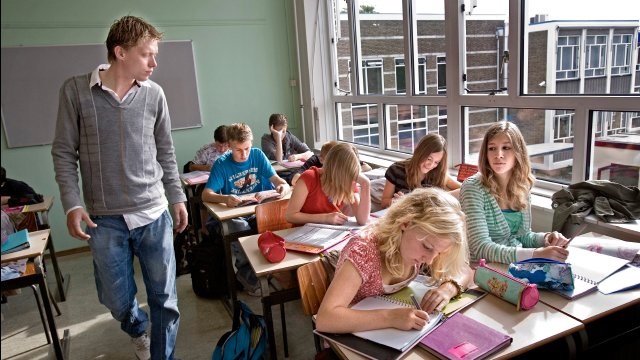An association that advocates for quality education for all in Belgium has taken issue with the idea that declining student performance is due largely to the Covid-19 pandemic, as suggested by the latest OECD PISA survey.
The NGO, APED (Call for a Democratic School in English), believes the decline can be explained as a structural trend observed over several years. It sees it as indicative of a deterioration in the quality of education in French-language schools in Belgium due to its operational system and a lack of financial resources.
“Attributing the principal cause of this decline mainly to the COVID crisis and schooling difficulties during that period is not plausible,” APED said on Wednesday.
A segregated school system
The OECD's latest Programme for International Student Assessment (PISA) survey, published on Tuesday, highlights a marked decrease in the competency levels of 15-year-old students in French-speaking Belgium, particularly in mathematics.
According to experts who led the study, this decline, also observed in other developed countries, is due to the health crisis and its consequences, such as school closures and remote teaching.
However, APED highlights other factors, among them a “growing gap between the humanistic, emancipatory vision that the majority of teachers uphold for their mission, and the prevailing expectations in a society where flexibility and speed tend to override deep, constructed knowledge.”
Related News
- Ixelles invests €60 million to transform vacant building into educational campus
- Belgium in Brief: Are schools the new target of extremism?
APED also points to what it sees as Belgium’s “catastrophic school equity situation.” The PISA study indeed shows a widening gap between the achievements of privileged and disadvantaged students, consistently making French-speaking Belgium one of the worst performers in this regard among developed countries.
Multiple studies also show that “the primary cause of this disappointing record lies in the social segregation of schools dictated by our ultra-liberal management of the school market,” APED argues.
To remedy this, the association suggests regulating school enrolment differently, by offering parents socially mixed schools close to home, without any obligation, but with the guarantee of a place reserved for their children.
The association also advocates for substantial structural changes in education and calls on “progressive educational forces to not abandon the fight for a demanding school to the right.”

